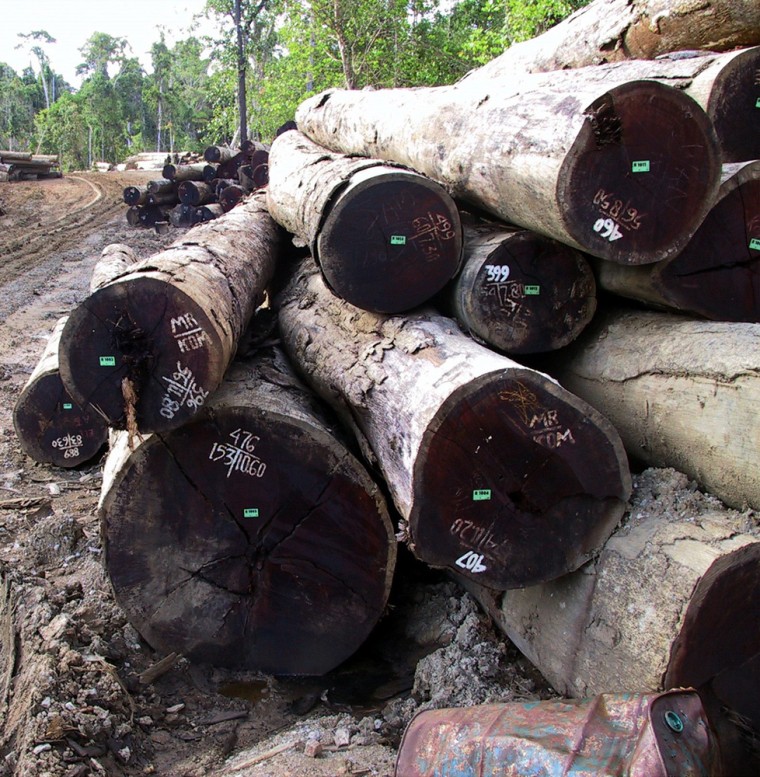Environmental activists said Thursday they had uncovered the world’s biggest smuggling racket involving a single type of wood, with huge shipments of logs being shipped from Indonesia’s remote Papua New Guinea to China.
The Environmental Investigation Agency, a nonprofit based in Britain and the United States, and its Indonesian partner Telapak said the illegal billion-dollar trade was threatening what they called the last remaining intact tropical forests in the Asia-Pacific region.
Following a three-year investigation, the groups said in a report that international criminal syndicates were behind “massive looting” of merbau trees from Papua province.
They said merbau, a hardwood used mainly for flooring, was being taken from Papua at a rate of around 300,000 cubic meters of logs each month to feed China’s timber processing industry.
“We think that this is the biggest case of a single species of timber, merbau, being smuggled from one location to another location,” Julian Newman, an EIA member, told a news conference in Jakarta.
“Our research shows this trade in merbau between Papua and China is being controlled by a few people, a few syndicates, so it’s the biggest sort of smuggling racket in terms of the volume and value of the timber being smuggled.”
Indonesia has the world’s worst deforestation rate, with an area the size of Switzerland being lost every year, the groups said. More than 70 percent of Indonesia’s original frontier forests have been lost.
Military collusion?
The government banned the export of all logs in October 2001, but that has not stopped the lucrative trade.
Collusion with Indonesia’s powerful military was apparent in the illegal merbau trade, activists said.
“In the case of merbau, there is involvement from the military ... There is a question mark over whether Indonesia’s military is serious to stop its involvement,” Arbi Valentinus of Telapak said.
A military spokesman was not available for comment. The armed forces has previously denied the institution was engaged in the trade, but conceded rouge elements could take part. Indonesia’s new president Susilo Bambang Yudhoyono has pledged to crack down on illegal logging.
Local communities in Papua receive around $10 for each cubic meter of merbau felled on their land, while the same logs fetch as much as $270 per cubic meter in China and up to $2,700 per cubic meter in Canada and elsewhere in North America.
Smugglers had turned their eyes to Papua because many tropical forests on Indonesia’s side of Borneo island as well as Sumatra island had dwindled, the groups said.
Papua province, a sparsely populated area nearly the size of France, forms the western part of the island of New Guinea. With intact forest cover at around 70 percent, New Guinea contains the last substantial tracts of undisturbed forest in the Asia-Pacific region, the groups said.
Shipment details
The EIA/Telapak investigations revealed a network of middlemen and brokers responsible for arranging shipment of the illegal logs to China, their report said.
The syndicates paid around $200,000 per shipment in bribes to ensure the logs were not intercepted in Indonesian waters.
It said the majority of merbau logs stolen from Papua were destined for the Chinese port of Zhangjiagang, near Shanghai.
“Indonesia and China signed a formal agreement over two years ago to cooperate in tackling the trade in illegal timber. So far these words have not been matched by actions,” Newman said in a separate statement.
